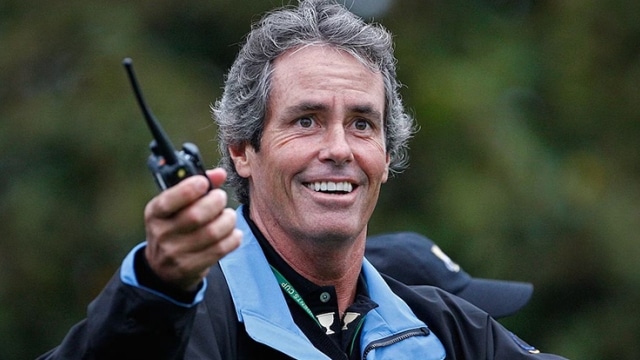Finchy says goodbye; POY is up for grabs; and something to think about
Each week, we ask our panel of writers, PGA members and golf industry experts to weigh in with their views on the hot topics of the day.
The regular season on the PGA Tour is over and only three playoff events remain. Based on their records during the season, who would get your vote for Player of the Year? Rory McIlroy with three wins including the Players and Masters, which clinched his personal career Grand Slam? Or Scottie Scheffler, also with three wins, including two majors – the PGA Championship and The Open?
Jim Deeks, Fairways Magazine (@jimdeeks): Much as I’d like to give the nod to Rory, I’ve gotta go with Scheffler. His flawless and dominating win at Portrush sealed the deal for me.
Craig Loughry, Golf Ontario (@craigloughry): Scheffler gets Player of the Year right now (and likely by seasons end). And I don’t even think it’s close, two Majors, and multiple Tour wins and top 10’s in the other two Majors. He’s first in class right now.
Michael Schurman, Master Professional / Hall of Fame Member, PGA of Canada: No doubt this subject will create some debate. However, Rory won the Masters and the Players, which in my view gives him two majors. The Players has the strongest field of the majors, and Rory completed the lifetime Grand Slam. The answer is Rory by a lot.
Hal Quinn, Freelance Writer, Vancouver: McIlroy has all the charisma that Scheffler lacks, but the weird dance-stepper had a better year. Besides the wins, his top 5 and top 10 numbers are amazing. But, like his reading list, Scheffler’s game is boring. His fairways and greens game can take the fun out of a tournament, as it did at The Open. As Rory conceded, Scheffler is setting the bar and then there’s the rest of them.
Peter Mumford, Fairways Magazine (@FairwaysMag): Usually winning two majors would be a slam-dunk for POY, but Rory did something that has only been done six times in history. And in doing it, he finally got past a psychological barrier that has been dogging him for more than a decade. The career Grand Slam is an accomplishment that stands above the rest. He gets my vote for Player of the Year.
Last Sunday was Ian Baker-Finch’s final broadcast as an analyst with CBS after 30 years on the air. What are your thoughts on Baker-Finch’s career and his contribution to golf on TV?
Deeks: IBF had an interesting career on the golf course. There’s no doubt he was very talented as a player, for nearly a decade, but like many of the rest of us, his game collapsed in 1995, to the point that he quit playing after shooting a first-round 92 in the 1997 Open Championship. But the Tour’s loss became the viewers’ gain, as Finchy became one of the best, most observant, and most articulate golf broadcasters in the world… with such a warm and friendly disposition, how could anyone not like the guy? He will be sorely missed.
Loughry: Ian will be missed, I think he’s been great on the mic. He was always willing to provide insight and question certain choices or shots played, but he does it with respect to the players. He had a real sense for the moment and always did his homework. As I said, he will be missed.
Schurman: The most noticeable part of his retirement is that there is no one to replace him. His calm demeanour, player-oriented background and qualities as a gentleman add up to a wonderful career. One act he fulfilled that pleases me is that he wrote a beautiful Letter of Support on behalf of Jerry Anderson, who is being inducted into the Canadian Golf Hall of Fame this month.
Quinn: Wow, it was 30 years ago that we first heard: “In the mayor’s office”? Seems like longer. Well, everyone is/was better than Gary Koch, but “Finchy” (damn, sports nicknames are lame) had a very irritating and long-winded habit of advising players on everything as if he were their caddy/psychologist/swing coach from telling a player how to act-react and what he had to do on his upcoming shot as if that was helping anyone — certainly not the player and definitely not the viewers. And if he knew so much about how to precisely approach and execute each shot why didn’t he win more when he was out there? But given golf TV’s track record, B-F was most likely better than his replacement will be.
Mumford: I probably yelled at Finchy to please stop talking at least once per broadcast, but his affable style and knowledge set him above many others attempting the same job. Overall, I enjoyed his stories and felt he offered something unique to golf analysis that won’t easily be replaced.
In a departure from our normal procedure, we asked the panel to comment on something about golf, past or present, that they find compelling and think would be of interest to readers.
Deeks: I’m going to take some liberty with your request, Mr. Moderator, and mention to all RT readers that Scott Burk and Joanne Doucette have just published Vol. 2 of their FASCINATING series Toronto’s Lost Golf Courses: How the Game of Golf Shaped a Region. This version covers the years 1920-1939, and like Vol.1 is full of information that 99% of readers would never have known about the rich history of the game in our own back yards. I urge you to buy a copy, read it, and then wait patiently for Vol. 3, which will take us up to 1975 or so. Now, to answer the request above, I’d love to see a respected golf scribe write a book that clearly defines the Top Ten Male Golfers of All Time, Ranked in Order. Who would they be, and who’d be No.1?
Loughry: I still think TOUR Matches (Ryder Cup style) between LIV vs PGA Tour would be pretty epic, but I don’t think that will ever happen. But that would certainly be of interest and well watched and talked about.
Schurman: With the invention of AI, I wonder when we will be able to play with players from the past? Just like the Holodeck in Star Trek, anyone can create any situation in the past and participate. Imagine playing with Ben Hogan, Bobby Jones and Harry Vardon at St. Andrews. Or Sam Snead, Byron Nelson and Walter Hagen at Augusta National. Or having lunch with Winston Churchill.
Quinn: Hard to calculate how many tens of millions of dollars (US) that have been squandered in just the past year on LIV’s and TGL’s misguided attempts to transform golf to attract a younger audience. We have a good idea how many millions the PGA Tour has spread around (as the honchos broadcast the enormous sums constantly) in the same pursuit with the same results. Meanwhile that target audience is already out there embracing golf, playing locally, and if the sons-in-law are any standard, going on golf buddy trips. They are spending on golf equipment and lessons, speed dialling for tee times, and loving the game. And the other thing they have in common is absolutely no interest in watching LIV, TGL, or the PGA Tour —except for glancing at or following the Majors. The pro game may be in crisis; the real game is not. Fairways does a great job covering the non-Tour scenes. Other outlets in what’s left of the media landscape should take note of the young golfers keeping the game alive and well.
Mumford: I’d love to see a revival of something like Shell’s Wonderful World of Golf, where two top players go head-to-head on some of the best courses in the world. They weren’t always compelling matches, but the scenery and the announcers made them must-see TV. With modern technology and no end of great courses, they could even be better. Shell didn’t rely on the players to talk and joke like some of the recent made-for-TV matches have done. It just let them play golf and the announcers supplied the appropriate entertaining and informative commentary.






